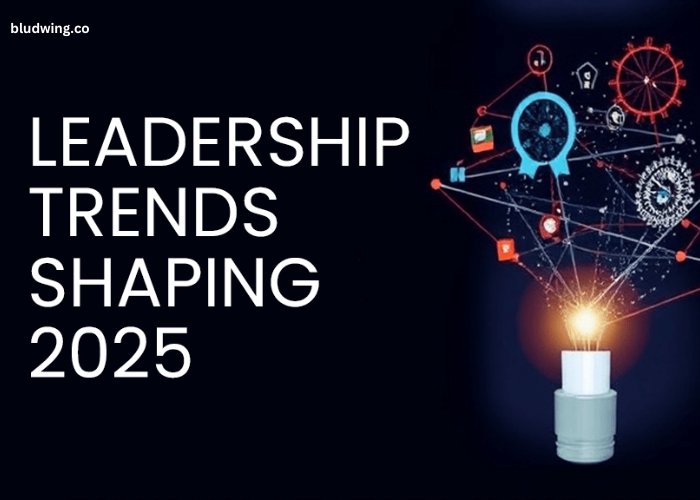As we approach 2025, business leadership is on the cusp of significant transformation. The modern business environment is becoming increasingly dynamic, driven by advancements in technology, shifting societal expectations, and the changing needs of the workforce. Leaders in 2025 will need to navigate a landscape where agility, innovation, and empathy will be critical to success.
These emerging trends are reshaping the role of business leaders and how they engage with teams, customers, and technology. Whether you are leading a large corporation, a startup, or a team of remote workers, understanding these trends will be essential to staying competitive and driving success in the evolving business world.
Key Points:
- Technology will continue to influence leadership, making digital skills essential.
- Empathy and emotional intelligence will become more important for leadership.
- Hybrid and remote work models will define the future of business operations.
What Are the Key Leadership Trends for 2025?
The business leadership trends for 2025 reflect the growing importance of adaptability, technology integration, and employee well-being. Let’s explore the key trends that will shape leadership in the near future:
1. Increased Focus on Emotional Intelligence (EQ)
In 2025, emotional intelligence (EQ) will be one of the most important leadership traits. As automation and AI take over more routine tasks, human elements like empathy, communication, and relationship-building will become key differentiators for effective leadership. Leaders will need to connect with their teams on a personal level, understand their needs, and provide support during difficult times.
For instance, leaders who can empathize with employees working remotely or manage diverse teams across time zones will have a clear advantage. Leaders who invest in developing their EQ will create stronger relationships and more cohesive teams.
2. Digital Fluency and Technological Integration
Business leaders will need to become fluent in the technologies shaping their industries. Digital transformation is no longer optional; it is a critical aspect of remaining competitive. Leaders will rely on artificial intelligence, machine learning, data analytics, and automation to make more informed decisions, streamline operations, and improve customer experiences.
In 2025, leaders will use data-driven insights to forecast trends, understand market behaviors, and personalize offerings. For example, in retail, AI could be used to analyze customer preferences and tailor marketing campaigns, while leaders in finance might rely on predictive analytics to manage risks.
3. Hybrid and Remote Work Models
The COVID-19 pandemic accelerated the adoption of remote work, and in 2025, hybrid work models will be the standard for many businesses. As remote work becomes a permanent feature of the business landscape, leaders will need to adapt to managing distributed teams. This requires new skills in virtual communication, collaboration, and maintaining a positive team culture without in-person interactions.
Leaders will need to focus on building trust, ensuring that teams are supported and engaged, and creating opportunities for team bonding and development, all while managing across different time zones and virtual platforms. A strong leader in this environment will be able to foster a sense of belonging and inclusion, even when the team is physically dispersed.
4. Purpose-Driven Leadership and Social Responsibility
As consumers and employees increasingly demand transparency, sustainability, and social responsibility, business leaders in 2025 will be expected to lead with purpose. The modern leader will need to align their organization’s goals with broader social and environmental causes, incorporating corporate social responsibility (CSR) into the core business strategy.
For example, companies that prioritize sustainability or contribute to social justice initiatives will attract talent and customers who share similar values. Business leaders will need to demonstrate how their organization’s actions positively impact society, whether through environmentally conscious practices or fair labor standards.
How Will Technology Impact Business Leadership in 2025?
Technology will continue to play an integral role in how leaders operate and manage their teams. In 2025, emerging technologies will influence leadership strategies in several ways:
1. Data-Driven Decision Making
As technology continues to evolve, business leaders will rely more on data analytics and artificial intelligence to inform their decisions. With access to real-time data, leaders will be able to make more precise and informed choices, reducing uncertainty and improving overall efficiency. Leaders will use predictive analytics to anticipate customer behavior, identify emerging market trends, and optimize operations.
For example, in marketing, data analytics will allow leaders to track consumer behavior, tailor their messaging, and measure campaign success. Similarly, leaders in manufacturing will use data to predict equipment maintenance needs, reducing downtime and improving productivity.
2. Automation and Workflow Optimization
Automation is one of the most significant technological trends impacting business leadership. Routine tasks like scheduling, reporting, and customer inquiries can now be automated using AI-powered systems and chatbots. Leaders will use automation to free up time for more strategic decision-making, allowing them to focus on higher-value activities like innovation, team-building, and long-term planning.
For instance, in a sales department, AI can automate lead scoring and customer outreach, while human leaders can focus on closing deals and building relationships.
3. Enhanced Collaboration with Virtual Tools
As remote and hybrid work models continue to dominate, business leaders will need to master virtual collaboration tools. Platforms like Zoom, Microsoft Teams, and Slack will become essential for maintaining productivity and communication. In 2025, leaders will need to be proficient in managing projects, coordinating tasks, and ensuring that teams work efficiently in digital environments.
Moreover, leaders will adopt tools that facilitate virtual brainstorming sessions, team-building exercises, and collaborative problem-solving. These tools will help bridge the gap between remote workers and ensure that collaboration remains a cornerstone of business success.
Table 1: Key Technologies Shaping Leadership in 2025
| Technology | Impact on Leadership | Example Use Case |
|---|---|---|
| Artificial Intelligence | Automates routine tasks, enables data-driven decisions | AI-powered customer service chatbots |
| Data Analytics | Improves decision-making with real-time insights | Predictive analytics for customer behavior |
| Virtual Collaboration Tools | Enhances team communication and productivity | Slack, Zoom for global teams |
| Automation | Increases operational efficiency by automating tasks | Automating payroll, report generation |
What Are the Key Trends in Employee Engagement for 2025?
In 2025, employee engagement will remain a top priority for business leaders. To ensure high levels of productivity and retention, leaders will need to focus on fostering a supportive, inclusive, and transparent work environment. Here’s how the trends in employee engagement are shaping the future of leadership:
1. Flexible Work Arrangements
Leaders will need to offer flexibility in where and when employees work. This includes remote work options, flexible hours, and the ability to balance work with personal life. A flexible work environment improves job satisfaction and encourages better work-life balance, leading to higher retention rates.
2. Focus on Well-Being
Employee well-being, including mental health support and physical wellness programs, will be a major trend in 2025. Leaders will need to implement programs that support both the emotional and physical health of their employees. This can include mental health resources, flexible sick leave, and wellness initiatives like gym memberships or mindfulness programs.
3. Learning and Development Opportunities
In a rapidly changing world, continuous learning is crucial. Business leaders will need to invest in employee training and development programs to ensure their teams stay competitive. This includes upskilling in areas like digital literacy, leadership, and problem-solving.
Conclusion: Leading the Way in 2025
As we look ahead to 2025, business leadership will require a blend of emotional intelligence, technological proficiency, and a commitment to fostering diverse and inclusive teams. The trends shaping leadership—such as digital fluency, hybrid work models, and purpose-driven leadership—will continue to evolve, and leaders must adapt accordingly.
By embracing these trends and integrating them into their leadership styles, business leaders can position their organizations for long-term success and sustainability. The key to thriving in 2025 will be agility, empathy, and a commitment to continuous learning and growth.
FAQ’s
1. What are the biggest leadership trends for 2025?
Key leadership trends for 2025 include a focus on emotional intelligence, digital fluency, hybrid work models, and purpose-driven leadership. These trends will help leaders navigate the evolving business landscape.
2. How will technology affect leadership in 2025?
Technology will enable leaders to make data-driven decisions, automate routine tasks, and enhance collaboration through virtual tools. Digital transformation will be crucial for business success.
3. What is the role of emotional intelligence in leadership for 2025?
Emotional intelligence will be essential for leaders in 2025 to build strong relationships, foster team cohesion, and manage diverse teams with empathy and understanding.
4. How can leaders adapt to hybrid work models?
Leaders can adapt by fostering trust, ensuring strong communication, and using digital tools to maintain team engagement and productivity across remote and in-office workers.
5. What trends will influence employee engagement in 2025?
Employee engagement in 2025 will be influenced by flexible work arrangements, a focus on well-being, and investment in continuous learning and development programs.




